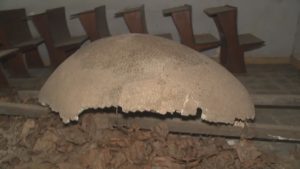Story By: Ernest Bio Bogore, Sub-Editor: Joseph Golder, Agency: Newsflash
French scientists have found that the coronavirus pathogen can survive long exposure to high temperatures, posing a threat to laboratory personnel who previously thought it was ‘deactivated’ in such conditions.
The study was conducted by scientists from the University of Aix-Marseille in the region of Provence in southern France.
Local media report that the researchers heated the pathogen causing COVID-19 to 60 degrees Celsius (140 degrees Fahrenheit) for one hour and found some strains were still able to replicate at that temperature.
Reports say that the standard protocol for wiping out the pathogen used in most laboratories normally involves exposing the virus to this temperature for one hour.
But the scientists noted that at this temperature, laboratory personnel were still exposed. Scientists had to bring the temperature to near boiling point (92 degrees Celsius (198 degrees Fahrenheit) for 15 minutes to completely kill the virus, local media report.
Researchers infected kidney cells from an African green monkey, a standard host material for viral activity tests, with a strain isolated from a patient in Berlin, Germany, in the tests.
The cells were loaded into tubes representing two different types of environments, one “clean” and the other “dirty” with animal proteins to simulate biological contamination in real samples, such as an oral swab, according to reports.
After being heated, the virus strains in the clean environment were completely deactivated. However, some strains from the dirty samples survived.
According to media reports, in the context of a growing demand for coronavirus testing, the results of this study are of great importance because often the work is done in poorly protected laboratories and their staff are directly exposed to samples that should be “deactivated” before processing.
The protocol of heating the virus to 60 degrees Celsius for one hour has been adapted in many laboratories working with a wide range of deadly viruses, including Ebola.
The ViralTab page is created by and dedicated to professional, independent freelance journalists. It is a place for us to showcase our work. When our news is sold to our media partners, we will include the link here.



